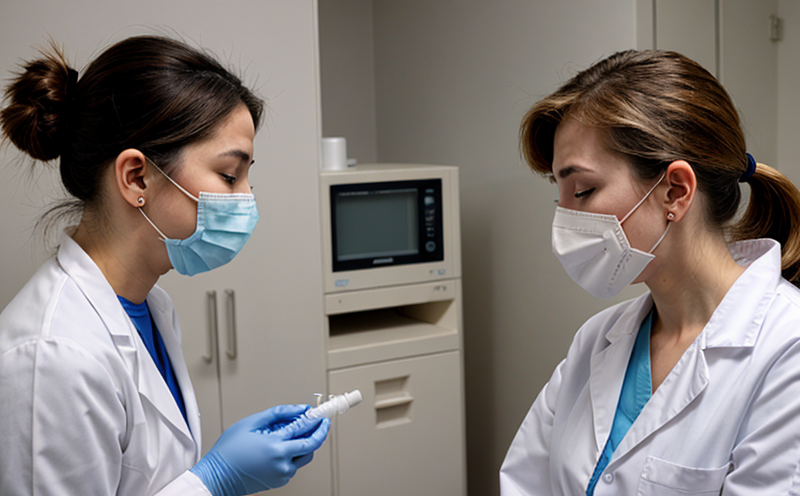Immune Tolerance Testing in Laboratory Rodents
In clinical and healthcare testing, particularly within the domain of allergy and immunology, immune tolerance is a critical concept. Immune tolerance refers to a state where the body’s immune system no longer reacts negatively to certain antigens that were previously considered foreign or harmful. This phenomenon is essential in managing allergies and autoimmune diseases, as it allows for therapeutic interventions without triggering unwanted immune responses.
Immune tolerance testing in laboratory rodents plays a pivotal role in this context. Laboratory rodents like mice and rats are widely used models in preclinical research due to their genetic similarity to humans, rapid reproduction rates, and the ability to manipulate their genomes. These animals serve as surrogate subjects for studying immune mechanisms that can be translated into human therapeutic strategies.
The testing process involves several steps, starting with selecting appropriate rodent strains. Different strains exhibit varying levels of immunological responses, which is crucial for ensuring accurate results. Specimen preparation typically includes introducing the antigen in question to the rodents under controlled conditions. This could involve subcutaneous injections, oral administration, or intravenous routes, depending on the specific research objectives.
Once introduced, the immune system of the rodent responds by producing antibodies and activating various immune cells. The key aspect of immune tolerance testing is monitoring this response over time to determine if there is a shift towards tolerance. This involves regular blood draws or tissue sampling to analyze changes in antibody levels, cytokine profiles, and cellular interactions.
The use of advanced laboratory equipment such as flow cytometers, ELISA kits, and PCR machines is essential for accurate measurement and analysis of immune parameters. These instruments provide precise data on the presence and activity of specific immune cells and molecules, which are critical indicators of tolerance development.
After a sufficient incubation period, results are analyzed to assess whether the antigen has induced a state of tolerance in the rodent model. This can be indicated by reduced antibody production or the absence of inflammatory markers typically seen during an allergic reaction. The data from these tests is then compiled into comprehensive reports that provide insights into the potential efficacy and safety of new treatments.
Immune tolerance testing not only aids in developing novel therapies for allergies but also holds promise for treating autoimmune disorders like multiple sclerosis, rheumatoid arthritis, and type 1 diabetes. By understanding how immune systems respond to specific antigens under controlled conditions, researchers can design more targeted and effective interventions that minimize adverse effects.
Moreover, this testing approach helps in identifying the most suitable patient populations for such treatments. It allows for personalized medicine strategies where therapies are tailored not just based on genetic factors but also on immune response patterns observed in preclinical models. This ensures that patients receive the most appropriate treatment without unnecessary side effects.
Overall, immune tolerance testing in laboratory rodents is a cornerstone of translational research aimed at improving human health by addressing both allergic and autoimmune conditions. The insights gained from these studies contribute significantly to the development of safer and more effective treatments for millions worldwide.
Benefits
- Accelerated Drug Discovery: By using laboratory rodents, researchers can quickly identify promising candidates that show potential in inducing immune tolerance without the need to immediately test them on humans.
- Precision Medicine: Understanding how different individuals respond to antigens helps tailor treatments to specific patient groups, enhancing efficacy and reducing adverse reactions.
- Safety Evaluation: This testing allows for early detection of any harmful immune responses that might occur during the development phase, ensuring safety before clinical trials are conducted on humans.
- Economic Efficiency: By identifying failures in preclinical stages, resources can be saved and redirected towards more viable candidates, reducing overall costs associated with drug development.
Industry Applications
The application of immune tolerance testing extends beyond basic research into various sectors including pharmaceuticals, biotechnology, and academic institutions. Pharmaceutical companies use this technology to develop new allergy treatments that can reduce or eliminate symptoms without the risk of severe side effects.
- Pharmaceutical Industry: Companies like GlaxoSmithKline (GSK) and Novartis are actively involved in research using immune tolerance testing to create innovative therapies for chronic inflammatory diseases.
- Biotechnology Sector: Biotech firms such as Amgen and Genentech leverage rodent models to explore novel approaches in allergy management, potentially leading to breakthroughs in treatment modalities.
- Academic Research: Universities like Harvard University and the University of California, San Francisco (UCSF) use this testing method to advance scientific knowledge on immune system regulation and its role in health and disease.
Environmental and Sustainability Contributions
The process of immune tolerance testing in laboratory rodents also has positive implications for environmental sustainability. By identifying effective treatments that can replace conventional allergen avoidance strategies, the need for stringent avoidance measures is reduced, which minimizes unnecessary resource consumption.
Additionally, the use of rodent models allows researchers to explore eco-friendly methods of producing therapeutic antibodies and other proteins used in allergy treatment without direct animal testing. This approach not only reduces reliance on live animals but also promotes more sustainable practices in biopharmaceutical manufacturing processes.
The insights gained from these tests enable better management of healthcare resources, contributing to a more efficient use of medical facilities and personnel. As a result, the overall environmental footprint of allergy treatment development is significantly reduced, aligning with broader sustainability goals within the healthcare sector.





